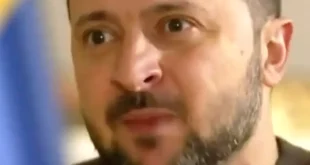“Journalistic malpractice” is a rather generous description of CNN’s reporting on Palestine / Israel.
A more accurate description would be “complicity in genocide”.
CNN’s talking heads aren’t journalists. They’re B-grade actors paid to promote a genocidal narrative.#cnn #Gaza pic.twitter.com/d43rCOoJMg
— Dimitri Lascaris (@dimitrilascaris) February 4, 2024
It seems fair enough that Jews would have veto power over every news story CNN published about the war, in light of the Holocaust.
I’ve seen the pile of shoes.
We can’t forget about that shoe pile just because Jews are mass-murdering children. We have to think about the fact that Jews get reminded of that shoe pile, and it’s deeply painful.
CNN is facing a backlash from its own staff over editorial policies they say have led to a regurgitation of Israeli propaganda and the censoring of Palestinians perspectives in the network’s coverage of the war in Gaza.
Journalists in CNN newsrooms in the US and overseas say broadcasts have been skewed by management edicts and a story-approval process that has resulted in highly partial coverage of the Hamas massacre on 7 October and Israel’s retaliatory attack on Gaza.
“The majority of news since the war began, regardless of how accurate the initial reporting, has been skewed by a systemic and institutional bias within the network toward Israel,” said one CNN staffer. “Ultimately, CNN’s coverage of the Israel-Gaza war amounts to journalistic malpractice.”
According to accounts from six CNN staffers in multiple newsrooms, and more than a dozen internal memos and emails obtained by the Guardian, daily news decisions are shaped by a flow of directives from the CNN headquarters in Atlanta that have set strict guidelines on coverage.
They include tight restrictions on quoting Hamas and reporting other Palestinian perspectives while Israel government statements are taken at face value. In addition, every story on the conflict must be cleared by the Jerusalem bureau before broadcast or publication.
CNN journalists say the tone of coverage is set at the top by its new editor in chief and CEO, Mark Thompson, who took up his post two days after the 7 October Hamas attack. Some staff are concerned about Thompson’s willingness to withstand external attempts to influence coverage given that in a former role as the BBC’s director general he was accused of bowing to Israeli government pressure on a number of occasions, including a demand to remove one of the corporation’s most prominent correspondents from her post in Jerusalem in 2005.
CNN insiders say that has resulted, particularly in the early weeks of the war, in a greater focus on Israeli suffering and the Israeli narrative of the war as a hunt for Hamas and its tunnels, and an insufficient focus on the scale of Palestinian civilian deaths and destruction in Gaza.
One journalist described a “schism” within the network over coverage they said was at times reminiscent of the cheerleading that followed 9/11.
“There’s a lot of internal strife and dissent. Some people are looking to get out,” they said.
Another journalist in a different bureau said that they too saw pushback.
“Senior staffers who disagree with the status quo are butting heads with the executives giving orders, questioning how we can effectively tell the story with such restrictive directives in place,” they said.
“Many have been pushing for more content from Gaza to be alerted and aired. By the time these reports go through Jerusalem and make it to TV or the homepage, critical changes – from the introduction of imprecise language to an ignorance of crucial stories – ensure that nearly every report, no matter how damning, relieves Israel of wrongdoing.”
CNN staff say that some journalists with experience of reporting the conflict and region have avoided assignments in Israel because they do not believe they will be free to tell the whole story. Others speculate that they are being kept away by senior editors.
“It is clear that some who don’t belong are covering the war and some who do belong aren’t,” said one insider.
At Thompson’s first editorial meeting, two days after the 7 October Hamas attack, the new network chief described CNN’s coverage of the rapidly moving story as “basically great”.
Thompson then said he wanted viewers to understand what Hamas is, what it stands for and what it was trying to achieve with the attack. Some of those listening thought that a laudable journalistic goal. But they said that in time it became clear he had more specific expectations for how journalists should cover the group.
In late October, as the Palestinian death toll rose sharply from Israeli bombing with more than 2,700 children killed according to the Gaza health ministry, and as Israel prepared for its ground invasion, a set of guidelines landed in CNN staff inboxes.
A note at the top of the two-page memo pointed to an instruction “from Mark” to pay attention to a particular paragraph under “coverage guidance”. The paragraph said that, while CNN would report the human consequences of the Israeli assault and the historical context of the story, “we must continue always to remind our audiences of the immediate cause of this current conflict, namely the Hamas attack and mass murder and kidnap of civilians”. (Italics in the original.)
CNN staff members said the memo solidified a framework for stories in which the Hamas massacre was used to implicitly justify Israeli actions, and that other context or history was often unwelcome or marginalised.
“How else are editors going to read that other than as an instruction that no matter what the Israelis do, Hamas is ultimately to blame? Every action by Israel – dropping massive bombs that wipe out entire streets, its obliteration of whole families – the coverage ends up massaged to create a ‘they had it coming’ narrative,” said one staffer.
This is another example of The Guardian going somewhere no American outlet would ever go, this time reporting on an American outlet.
It’s an interesting dynamic that has formed.
Israeli warplanes bombed a four floor residential building which was a shelter for 10 families in Deir Al Balah, central Gaza. pic.twitter.com/aDq8joYKrb
— Eye on Palestine (@EyeonPalestine) February 4, 2024
 Daily Stormer The Most Censored Publication in History
Daily Stormer The Most Censored Publication in History




